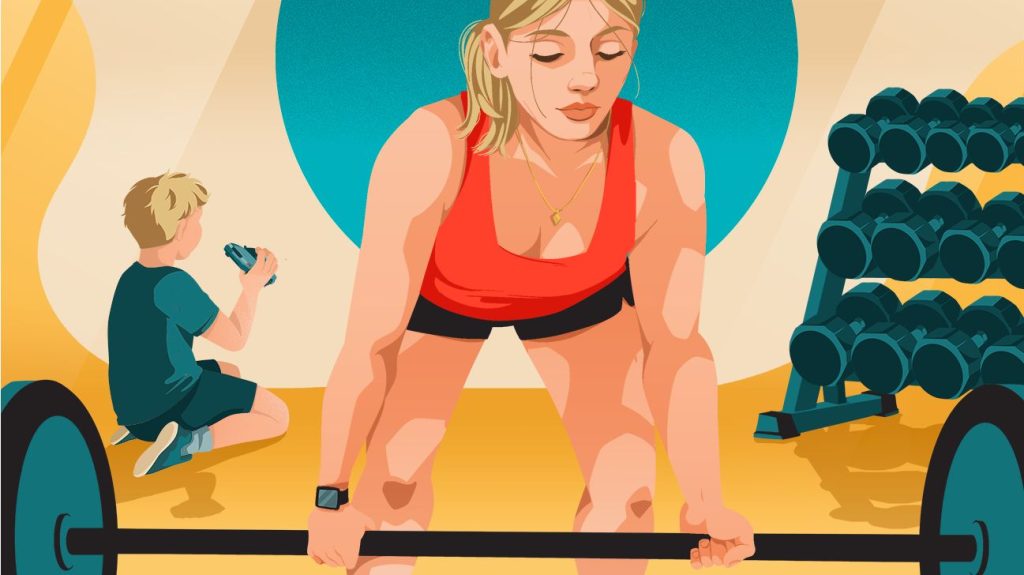
- A large study found that moderate to severe obstructive sleep apnea symptoms are more likely to occur on weekends, a trend researchers are calling “social apnea.”
- Late nights, sleeping in, alcohol, and skipping CPAP therapy could be contributing factors.
- Even without the sleep disorder, irregular weekend routines can cause “social jetlag,” experts say.
- Keeping a consistent wake-up time, limiting weekend sleep-ins, and alternating alcohol with water can help promote quality sleep.
Late nights and a few drinks might be disrupting your sleep more than you think.
A large international study led by researchers at Flinders University has found that symptoms of obstructive sleep apnea (OSA) — a common sleep disorder that may slow or stop breathing — may tend to worsen on weekends.
Researchers coined the term “social apnea” to describe the weekend increase in symptoms, which appear driven by lifestyle habits such as staying up late, sleeping in, and drinking alcohol. Adherence to OSA therapies like CPAP machines may also be less consistent on weekends.
The team analyzed data from over 70,000 people worldwide and found participants were 18% more likely to have moderate to severe OSA on weekends (Saturdays) than mid-week (Wednesdays).
Sleeping an extra 45 minutes or more on weekends increased the risk of worse sleep apnea by 47%.
“Biologically, these habits can relax the muscles in the throat, push sleep into early-morning REM stages (when OSA is often more severe), and throw the body clock out of sync,” Heather Darwall-Smith, a psychotherapist specializing in sleep, who wasn’t involved in the study. told Healthline.
Why ‘social apnea’ may worsen on weekends
Sleep specialist Lindsey Hanna said symptoms of “social apnea” could develop even in those who don’t have obstructive sleep apnea.
“We often call it ‘social jetlag,’” she told Healthline. “Your body clock thrives on predictability, and when you shift your schedule by several hours on the weekend, your sleep becomes lighter and more fragmented.”
“Even without OSA, people often notice Monday morning grogginess, cravings for sugary foods, and reduced focus. You don’t need a diagnosis of OSA to feel the impact because your circadian system always notices when routines are off,” Hanna continued.
Certain individuals may be more susceptible to sleep-related disruptions than others.
“The research found the effect was stronger in men and in adults under 60, but anyone who lives with big swings between weekdays and weekends is likely to notice it,” Hanna said.
“Shift workers, parents of young children, or anyone juggling late nights with early starts are especially vulnerable to weekend-related sleep disruption,” she added.
Long-term effects of poor sleep
Long-term poor sleep — even if it’s only on weekends — can take a toll on physical and mental health.
“Even without diagnosed OSA (bear in mind it is massively under-diagnosed), irregular weekend routines can fragment sleep, reduce deep and REM stages, and leave you feeling less rested,” Darwall-Smith said.
“It can also disrupt hormone balance, including leptin and ghrelin. This can lead to increased appetite, food cravings, and gradual weight gain, which in turn can raise OSA risk.”
Late nights and increased alcohol consumption can also impact body weight and appetite hormones.
“Eating large, late meals can disrupt digestion overnight and, over time, contribute to weight gain,” Darwall-Smith explained.
“This is important because extra weight around the neck and upper airway increases OSA risk, while disrupted sleep alters hormones like leptin (which signals fullness) and ghrelin (which triggers hunger), making it harder to maintain a healthy weight.”
Darwall-Smith said these factors can affect mood, focus, and emotional regulation, which may influence a person’s behaviors in relationships, at work, and in daily life.
“Beyond the medical side, disrupted sleep also affects patience, communication, and emotional availability,” she explained.
Lifestyle changes to improve sleep quality
If you’re concerned you’re not getting enough quality sleep on the weekends, experts say it’s important to maintain a consistent wake-up time, even on weekends.
“Even if you go to bed later, try not to sleep in too much the next day as that can trigger social jetlag,” Darwall-Smith advised.
For those nights when you don’t get enough quality shut-eye, Hanna recommended short daytime naps, of 30 minutes or less, “rather than prolonged morning sleep to repay sleep debt.”
If you’re consuming alcohol, Darwall-Smith noted it’s a good idea to alternate drinks with a nonalcoholic beverage.
“For every alcoholic drink, have a glass of water; this reduces dehydration and may lessen airway relaxation,” she explained.
What and when you eat can impact your sleep quality as well.
“Aim to finish large or heavy meals at least two to three hours before bed to aid digestion and reduce night-time reflux, which can worsen breathing disruptions,” Darwall-Smith advised.
You should also carve out time for restful activities on the weekend. For example, Darwall-Smith recommended adding recovery time to your weekend schedule.
“Plan lighter activities the morning after a big night, so you’re not overloading yourself when you’re already short on restorative sleep,” she said.
“What I like about the ‘social apnea’ concept is that it reminds us that sleep health isn’t just a medical issue, it’s relational,” Darwall-Smith said.
“It affects how we feel, think, and interact, and, fortunately, small changes in weekend habits can protect not only your health but also the quality of your time with loved ones.”

